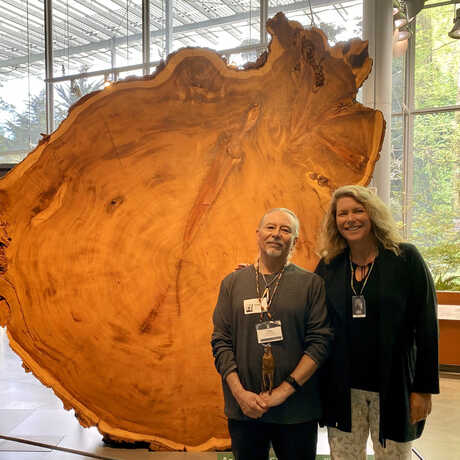Black at the Academy: Past, Presence, Future

Over the past few years, NightLife has grown into a space of inclusivity and representation where marginalized communities can find their voices and tell their stories. As my team explored ideas for a Black-centric event to kick off the first day of Black History Month, we realized something: Black Academy staff in the present day have their own stories to tell—and have made history, too.
Meeting with my Black coworkers to curate the event was powerful. Our discussions about a "Black Thursday" event transformed into a forum for validating each other's realities as Black individuals navigating a society that often minimizes us. The trauma and self-doubt embedded in Blackness can feel isolating, but connecting with the group reminded me that I'm not alone in my struggle.
On the night of the event, warmth, inspiration, and joy permeated every corner of the museum. From the candid narratives of the Women of the Black Panther Party to the thought-provoking Black Box exhibit to the nostalgic selections of DJ Lady Ryan, the evening was a celebration of Black creativity, ingenuity, and resilience, and every interaction felt like an exchange of gratitude.
Allow this anthology of Black voices to resonate with an open mind—and remind yourself that some experiences may be as challenging to hear as they were to tell. Through these narratives, we have an opportunity to discover our shared humanity, our unique differences, and the strength we gain from acknowledging both.
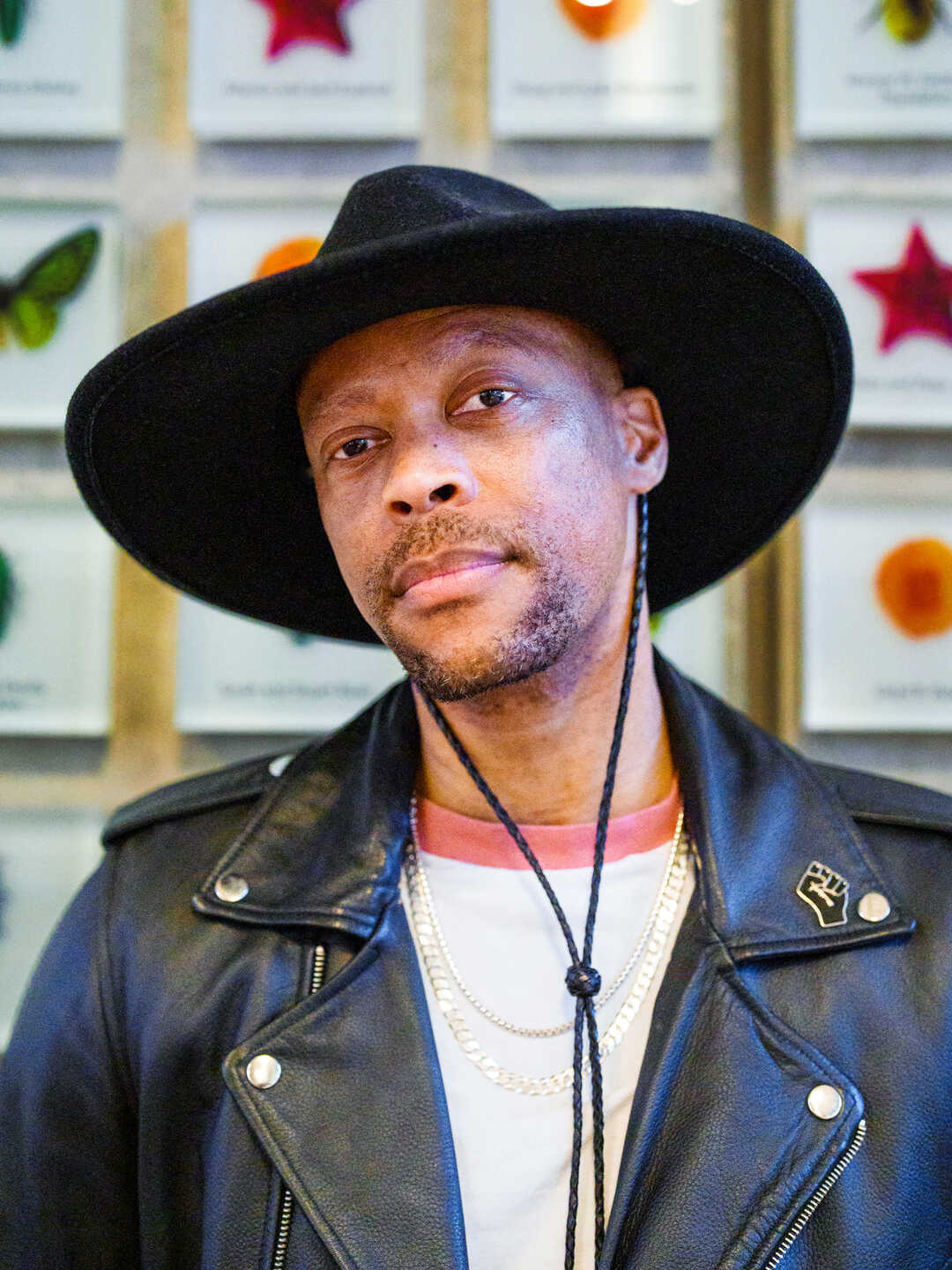
© 2024 Brandon Robinson
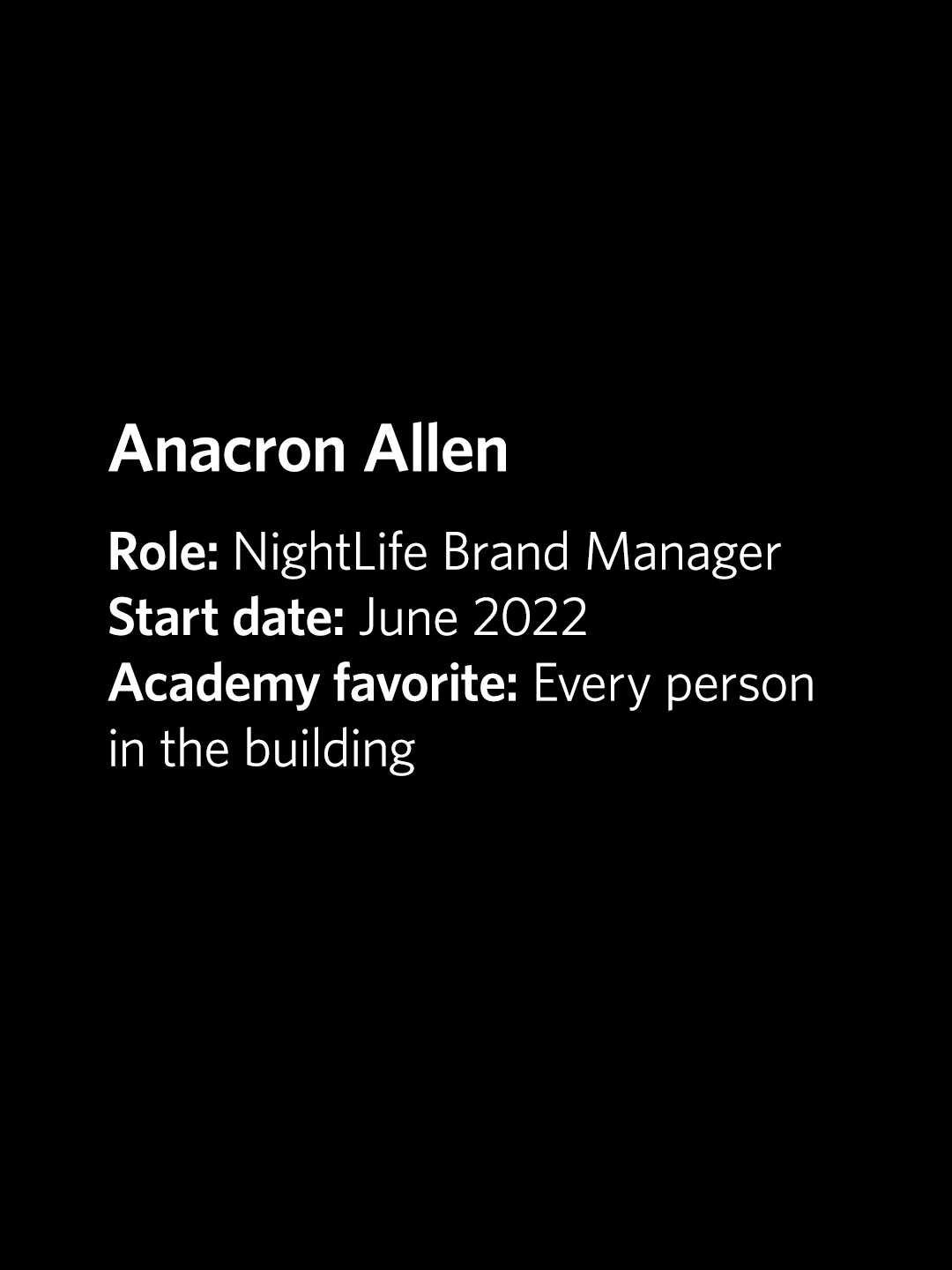
What does Black History Month mean to you?
Despite a lifetime of acknowledging, defending, and exploring my Black identity, Black History Month has never strongly resonated with me. I believe that Blackness, like any identity that unites us in our singular and shared experiences, deserves recognition and appreciation beyond the confines of a single month, especially the shortest one of the year.
How does being Black impact or inform your work at the Academy?
Representation matters. Seeing myself reflected in the world around me is crucial for inspiration, aspiration, and growth. It empowers me—and others—to see a future beyond limitations and cosigns the truth that our lived experiences are valid and valued.
How can museums and cultural institutions in general better serve underrepresented and marginalized communities?
Meet them where they're at, ensure they feel seen and heard, and treat them with the same respect and consideration afforded to all. Celebrate their differences and create space for them to be themselves. Embrace collaboration and actively listen to their needs and expectations. Shift focus from financial donations to offering relevant resources, expertise, and platforms for community voices. This will foster genuine inclusion, community empowerment, and investment in long-term success—and goes beyond performative actions to check a DEI box.
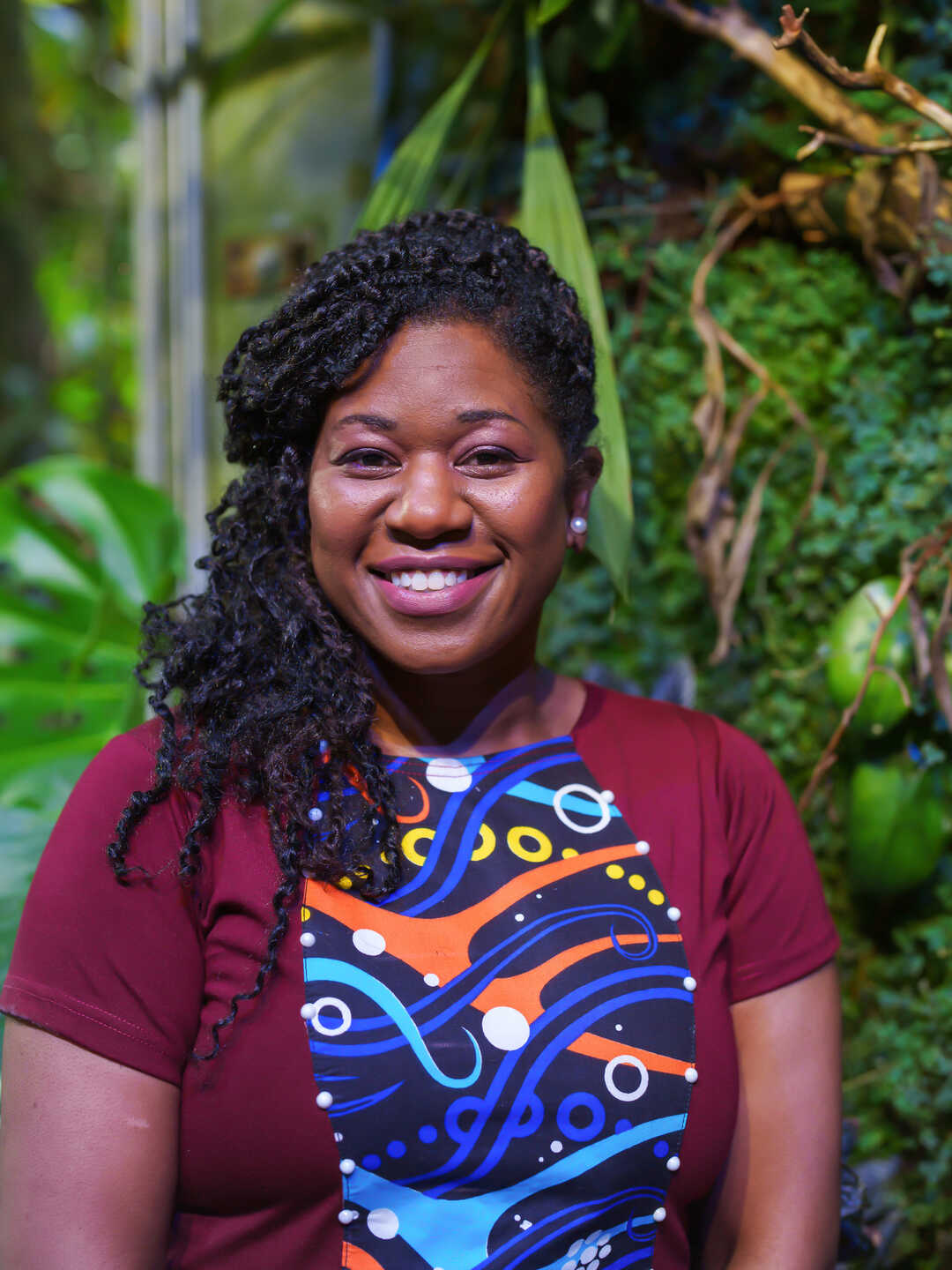
© 2024 Brandon Robinson
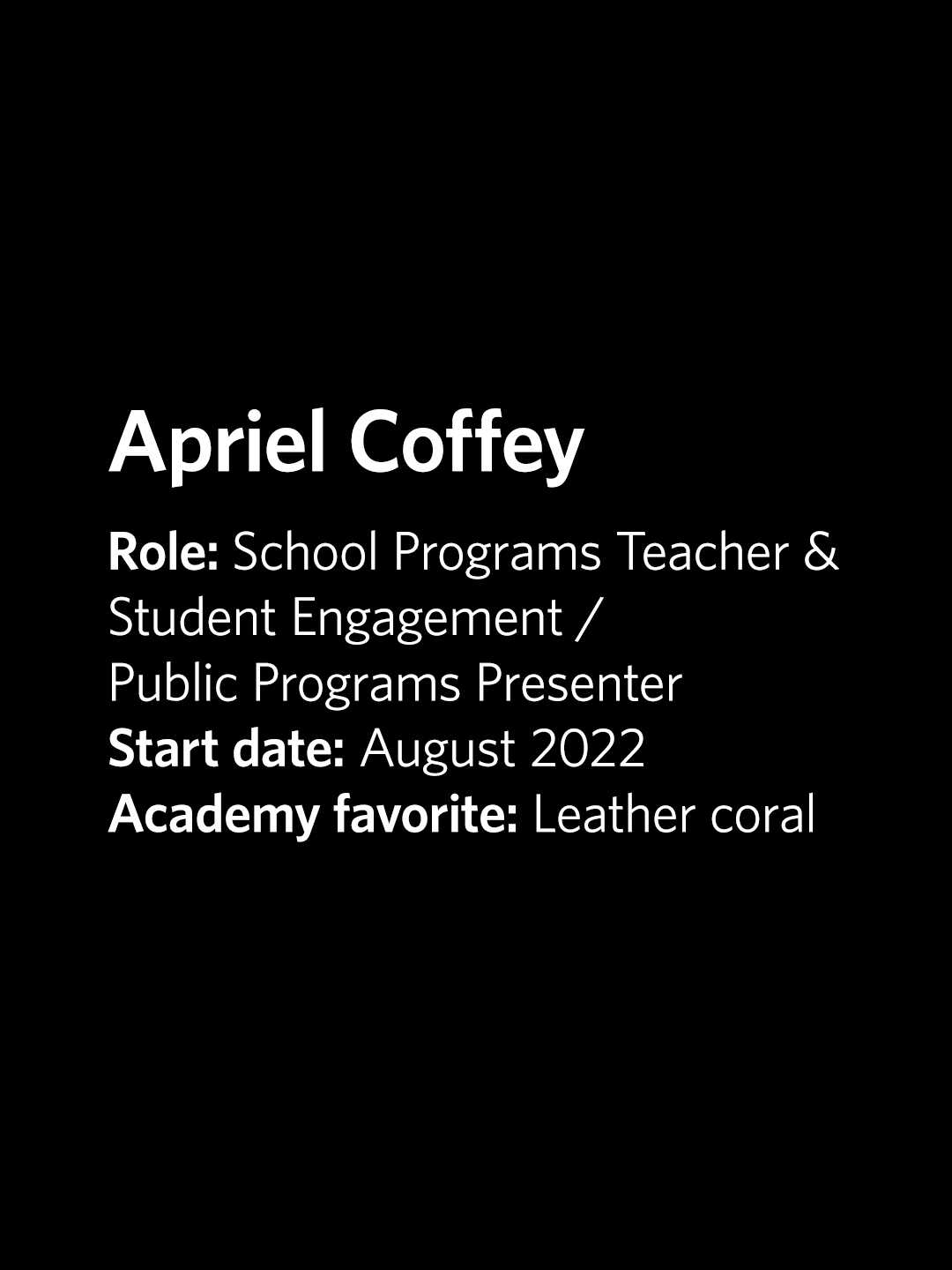
What drew you to the Academy?
I returned to San Francisco after a hiatus in teaching to explore the tourism and hospitality business for a brief time and I wanted to extend my talents of helping others back on my natural path as an educator. Now, I walk through the Academy doors each day into a place full of fresh collaborative ideas and excited folks from around the world eager to learn more about how they can help the world.
How can the Academy be more welcoming to Black guests and staff and more responsive to the needs of Black communities?
We need to better communicate and promote to Black communities the value of the in-person, social learning experiences the museum can provide. When people visit the Academy, they reconnect with their inherent wonderment and gratitude for nature, which makes a positive impact on them as well as our shared future.
Is there a specific area of your work that you’re especially proud of?
I was an Educator in Training last year when I designed and implemented a lesson for School and Family Night about pine cones. This year, I returned as a School Programs Educator and was elated to know those students looked for me when they had their outdoor class. I am proud to have worked with a team who taught me the steps to creating a lesson of my choosing.
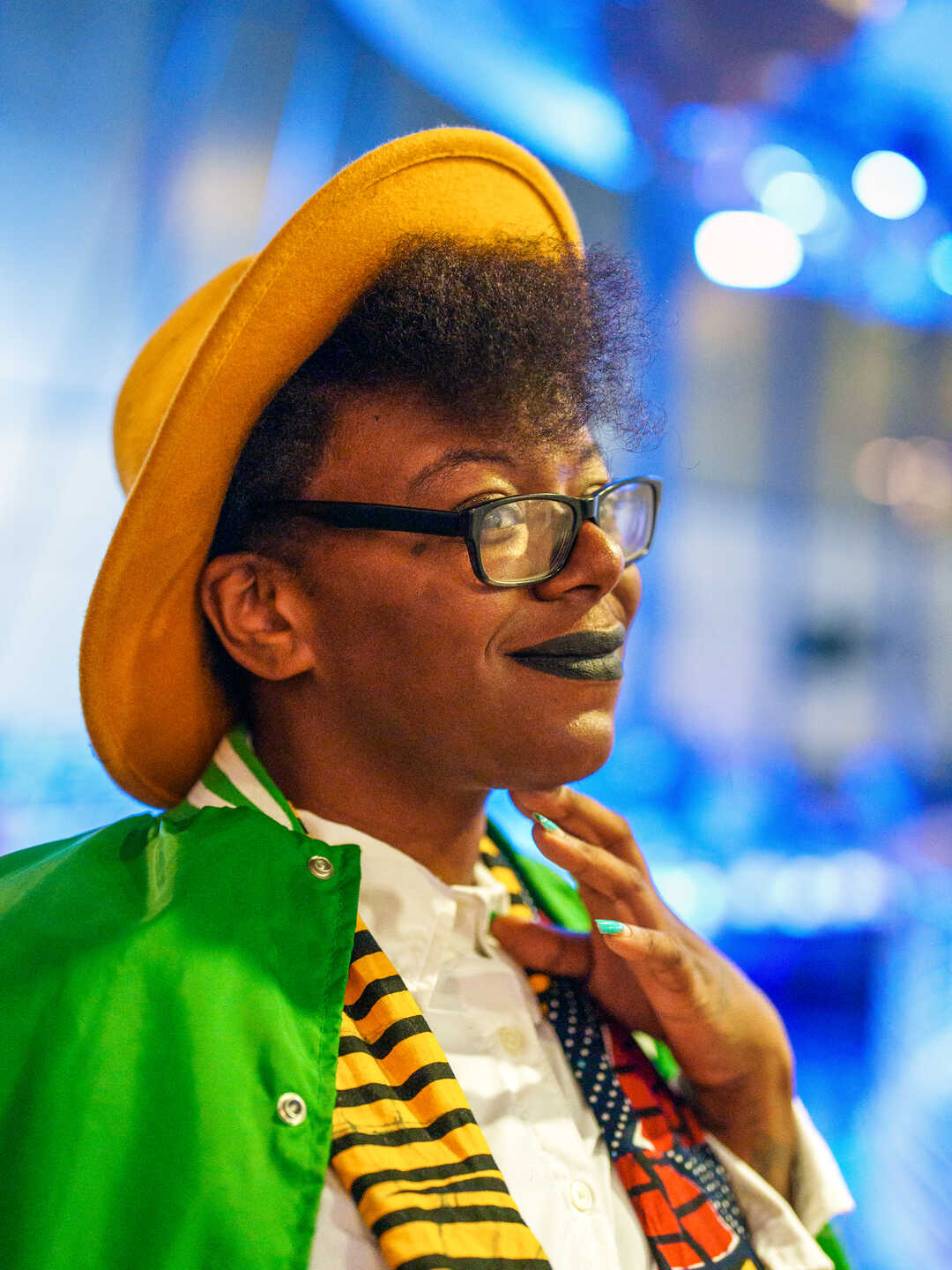
© 2024 Brandon Robinson
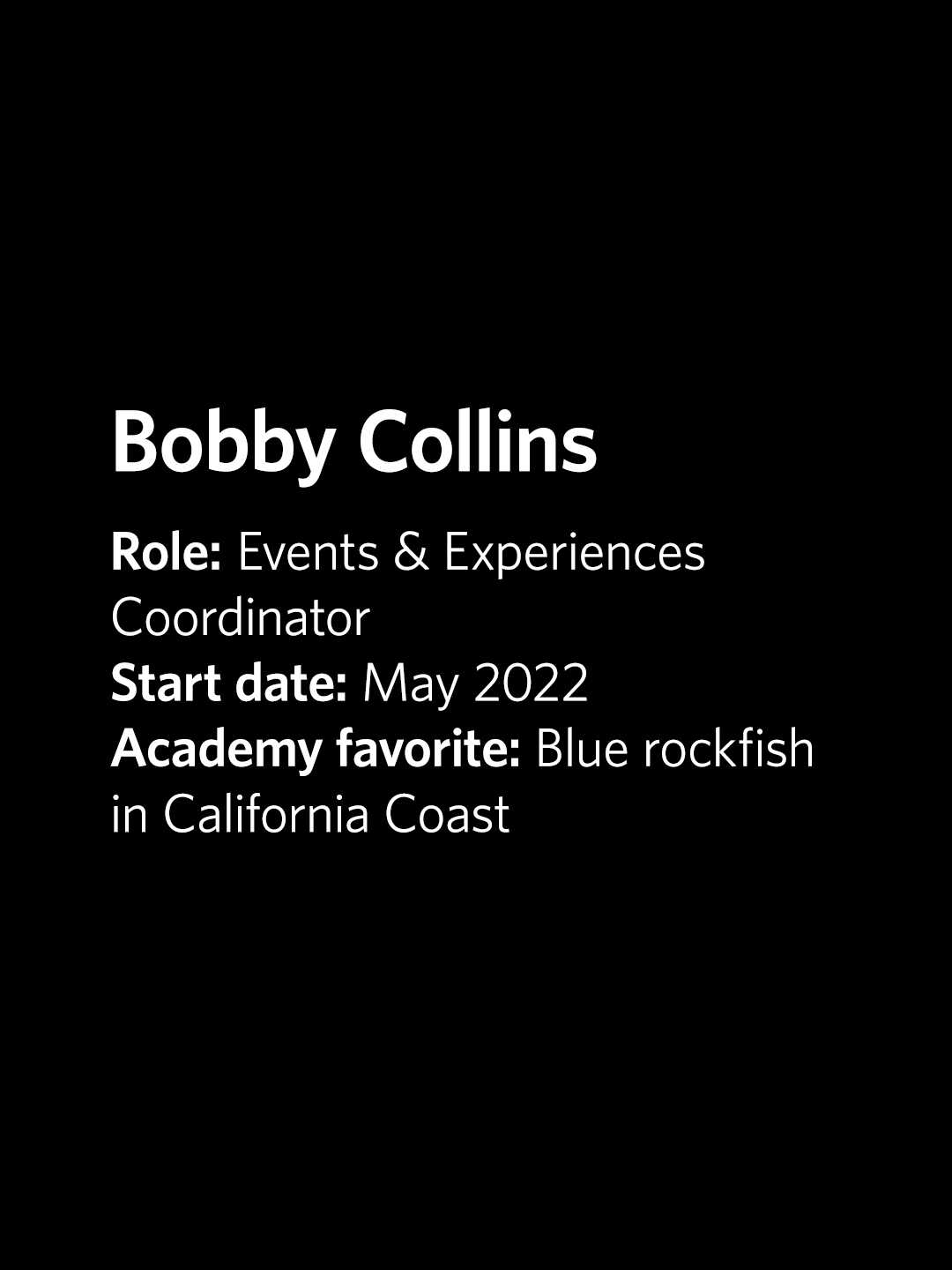
How does being Black impact or inform your relationship to science and nature?
Being Black in nature or at a museum can feel isolating and performative as I often sacrifice my own comfort for the comfort of others. As a human, I love and have a natural curiosity for science and nature but as a Black person I often feel like I don't belong, so I always find myself looking for the ME’s for comfort and reassurance.
Is there another Academy employee past or present you’d like to celebrate?
Cathy Estelle [the Academy’s Director of Sales and Experiences] has been my SHEro since day one! Being the new kid in the office is nerve-racking and being a minority in any space can be lonely and overwhelming, but Cathy made me feel seen, loved, and welcome from the beginning—all while being a boss in her field.
How can museums and cultural institutions in general better serve underrepresented and marginalized communities?
I think the best ANYONE can do is not just talk about it—be about it! Allyship is more than a word, it’s an action. We must be willing to search people out, bring people in, and listen to their needs. Having a seat at the table is always a great first step toward true collaboration and community service.
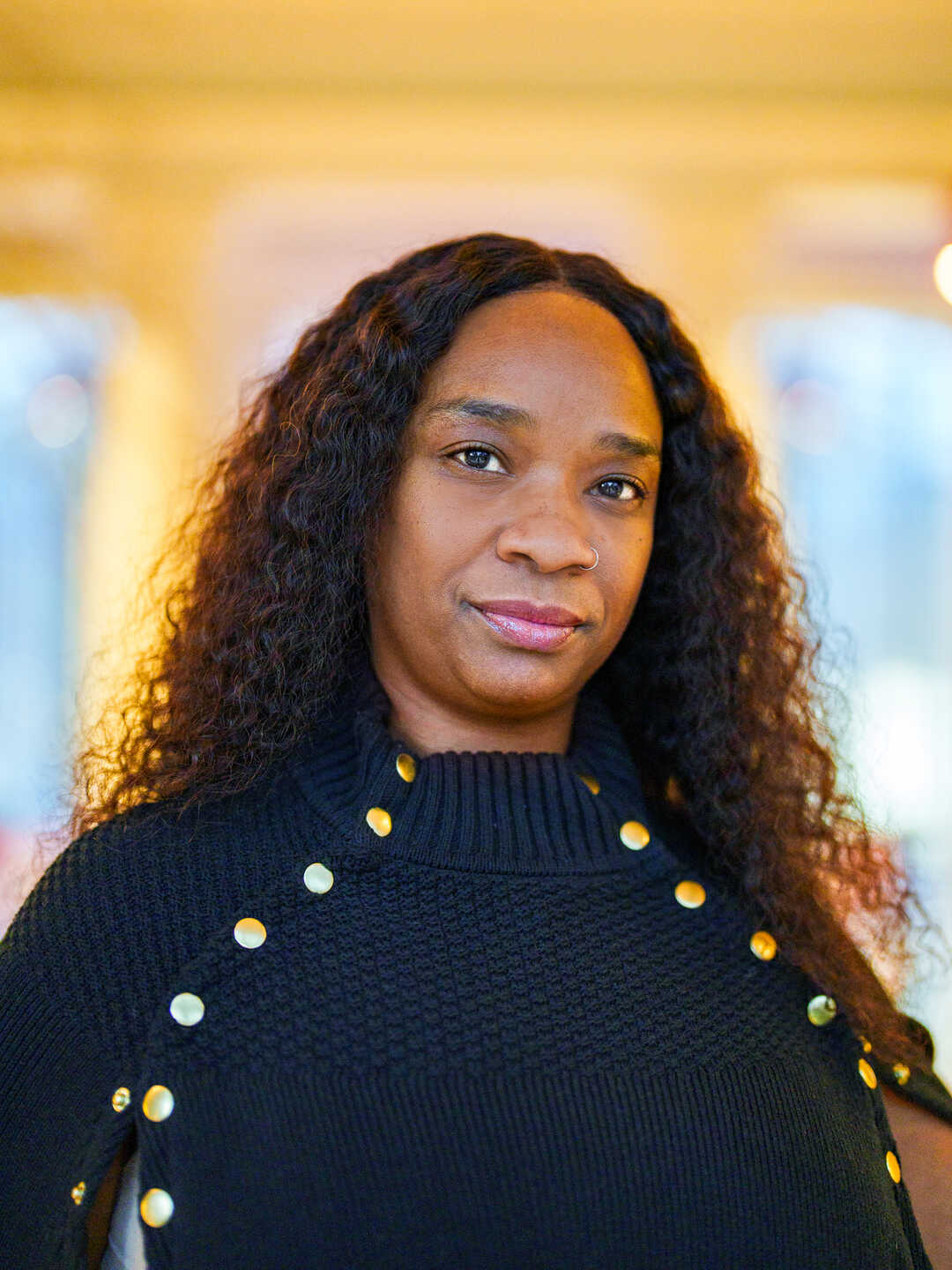
© 2024 Brandon Robinson
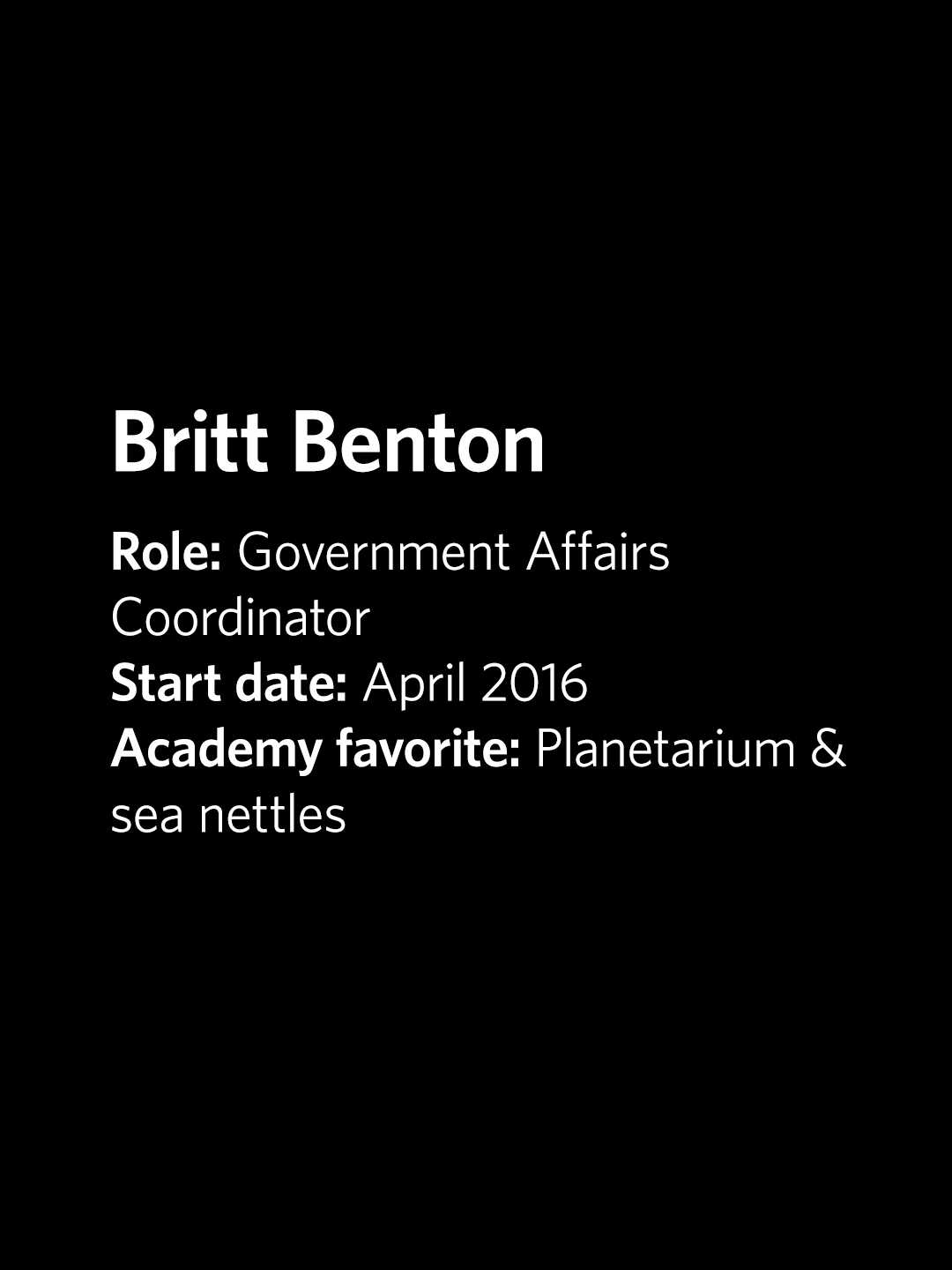
What does Black History Month mean to you?
Black is who I am, who I'll always be, and I wouldn't trade it for a thing. I feel this way every day. To me, Black History Month offers another opportunity to celebrate everything that Black people and their descendants have contributed to society—and a time for me to reflect on my family's journey from the Jim Crow-era Mississippi Delta and Pittsburgh, Pennsylvania, to San Francisco.
Is there another Academy employee past or present you’d like to celebrate?
I have four shout-outs: Leah Van der Mei [the Academy’s Chief Operating Officer and Head of Government Affairs] for always encouraging me to challenge myself; Richie Lipton [NightLife Event Production Specialist] for always looking out for me; Michael Costanzo [General Counsel and Chief of Staff] for bringing me to the Academy from Sunset Youth Services; and my manager, Samantha Delucchi [Government Affairs Manager], for seeing me as a person and helping me grow in my role.
How can the Academy be more welcoming to Black guests and staff and more responsive to the needs of Black communities?
The Academy can be more welcoming to Black staff/guests by throwing all of their stereotypes and implicit bias out the window. Stop saying "I don't see color," which I've heard: Seeing color is vital to recognizing and overcoming your own biases. Giving people a chance doesn't hurt. I do want to acknowledge that the Academy has hired more Black and Black-identifying staff in recent years, which is a step in the right direction.
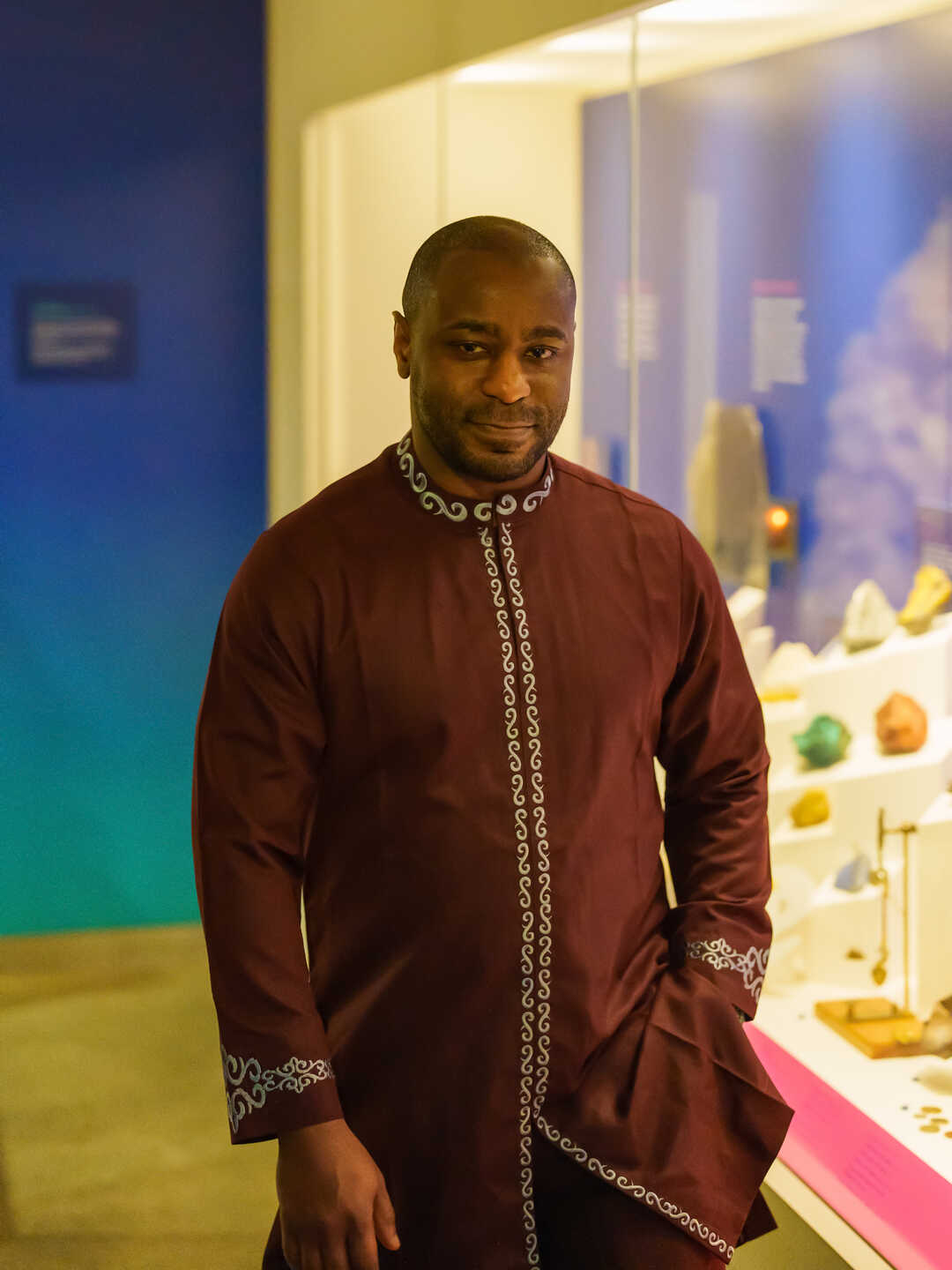
© 2024 Brandon Robinson
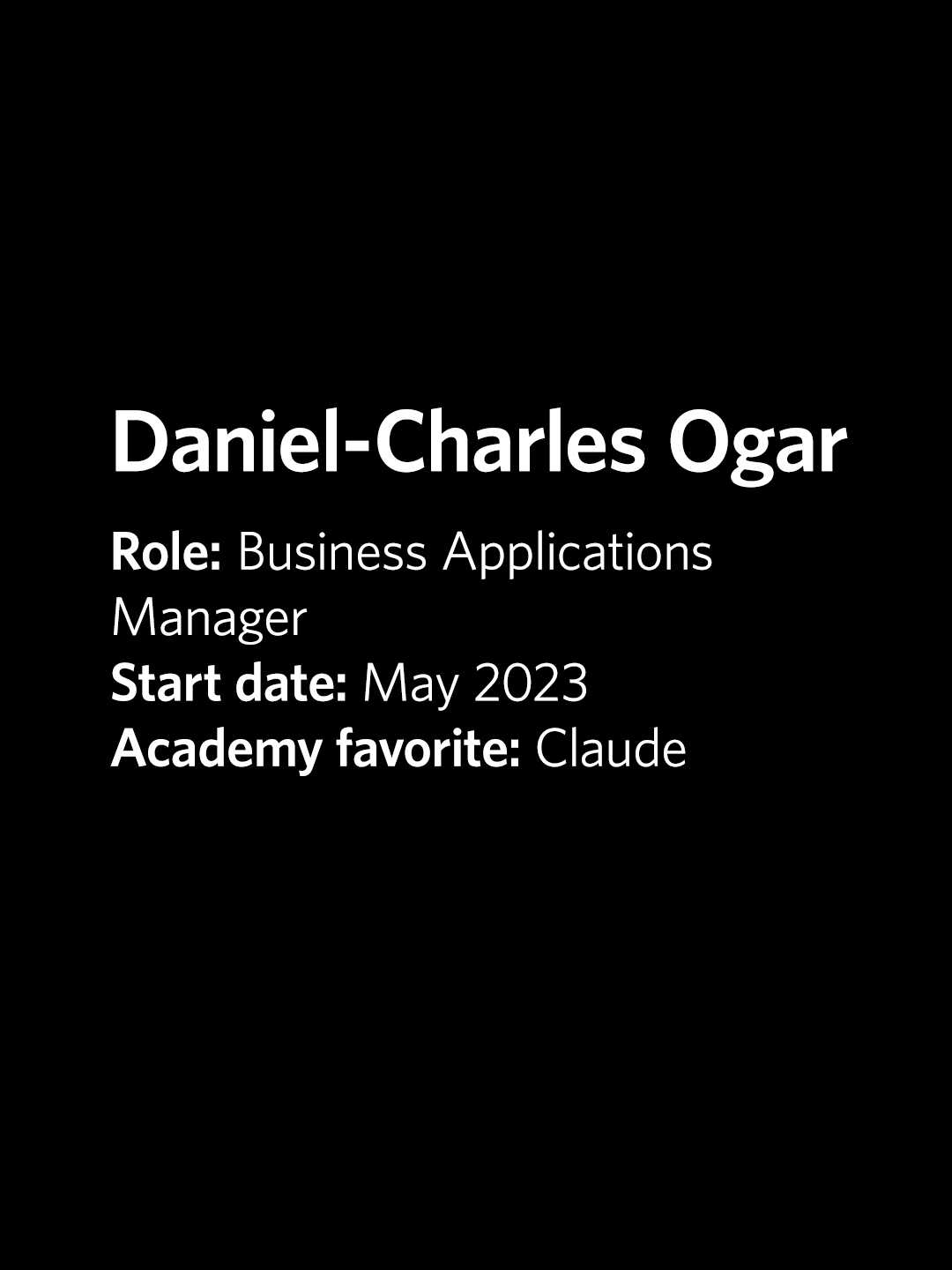
What does Black History Month mean to you?
Being born and raised outside of the US, the relevance of the month is not as substantive for me as I celebrate and recognize my identity all year round. However, in the context of the American experience and its history, it is meaningful to pause for a moment and dedicate time and effort to see the contributions of a people in what was, and continues to be, America.
How does being Black impact or inform your relationship to science and nature?
Growing up in Nigeria, we lived in balance with nature. I carry that same sense of responsibility and lessons learned on to this day. As such, I have a responsibility to keep nature in balance to the best of my ability, be that naturally or through science and technology for myself, my community, and those to come after me. We are temporary stewards of this place we all call home and it is our responsibility to use the cultural and scientific knowledge and means we have to preserve what we can.
Do you have any advice for members of Black communities hoping to work in your field?
There's a general disparity of members of the Black community in IT [Information Technology] and even less in IT in museums, zoos and aquariums. Dedicate your time and effort to a technical specialty, focus on an institution that appeals and calls to you, and knock on every door it has. Hopefully, there will be someone such as myself, who had a door opened for me, who will answer that call and provide an opportunity if it is the right fit.
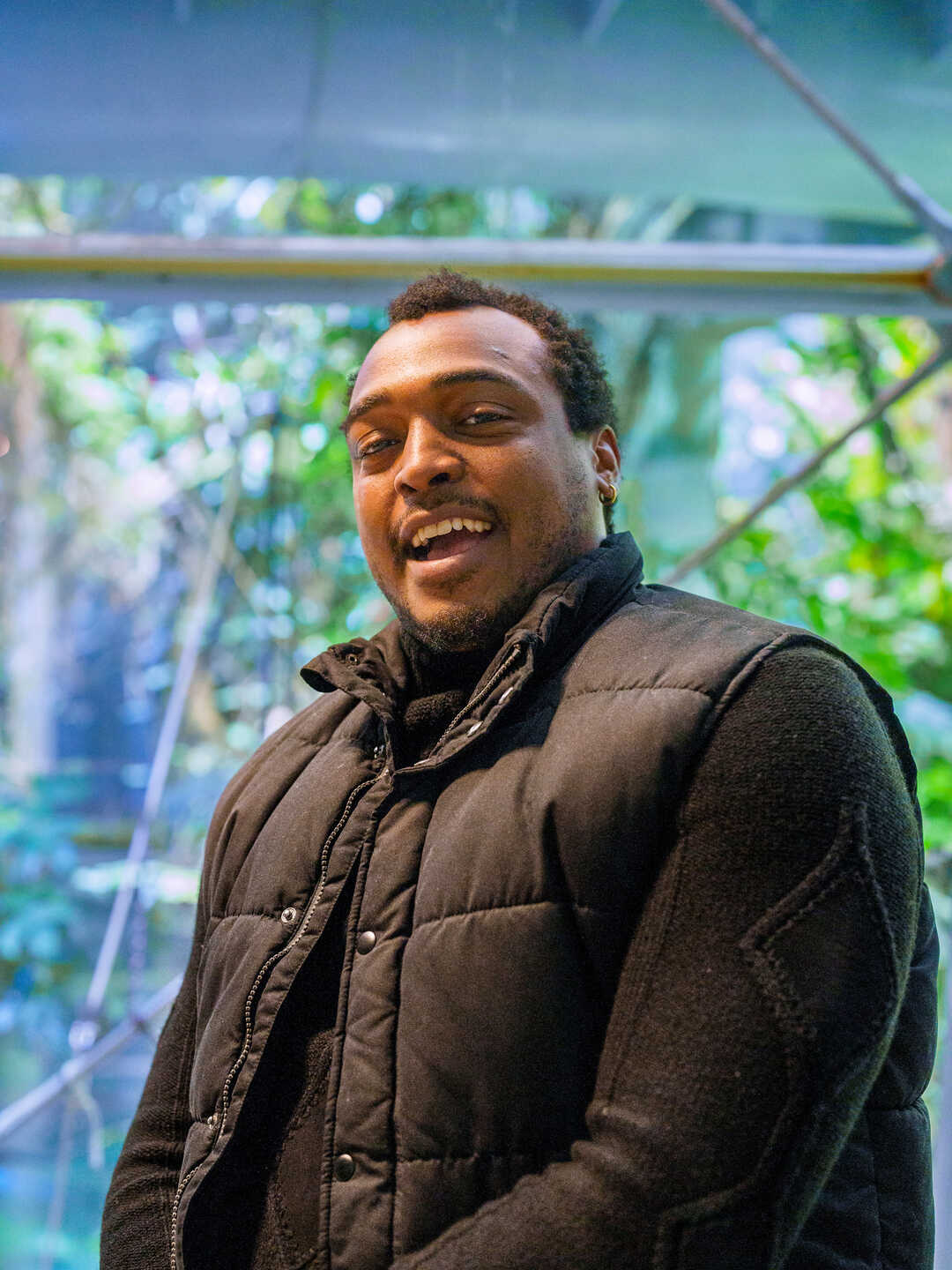
© 2024 Brandon Robinson
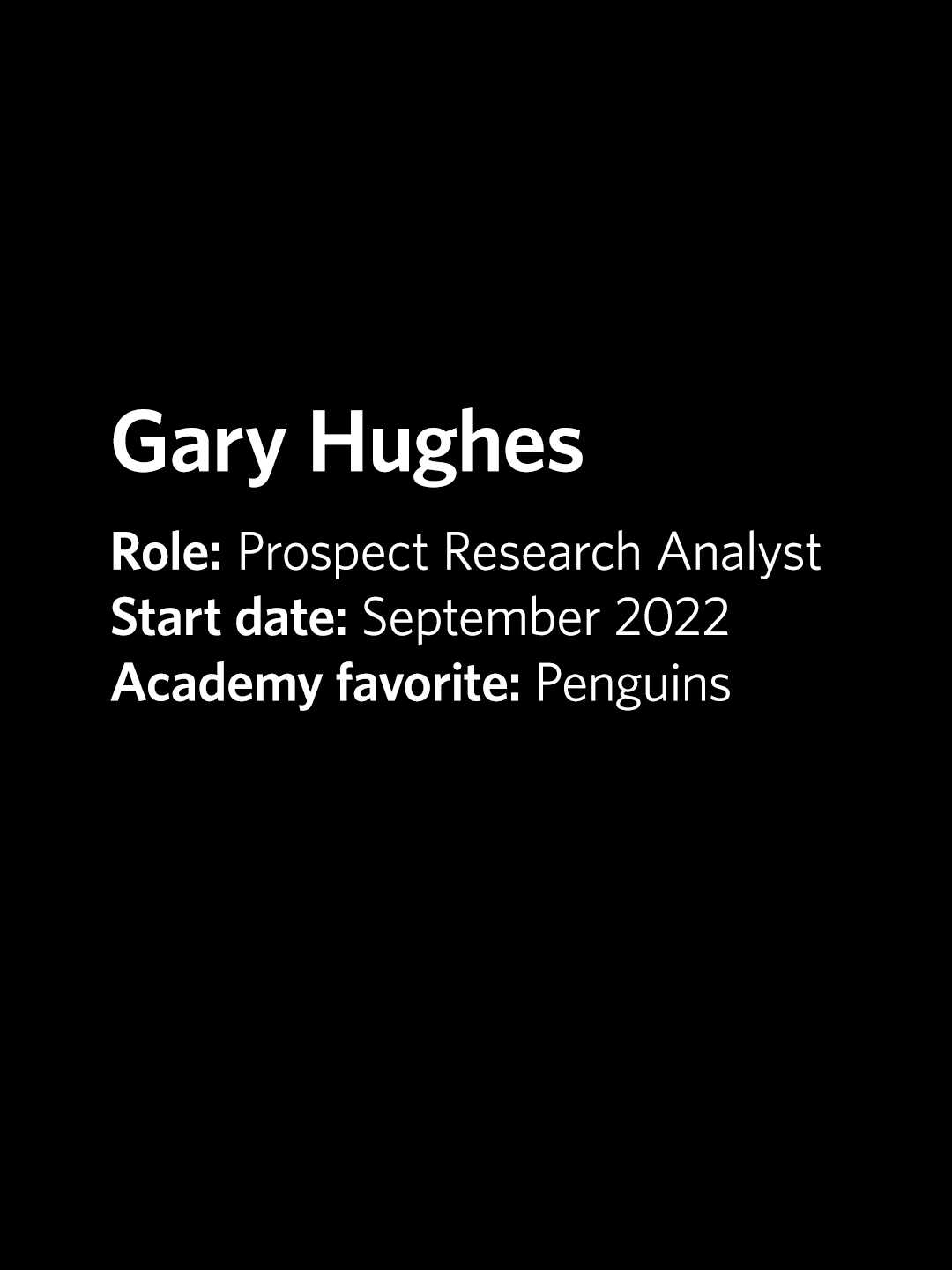
What does Black History Month mean to you?
I'm ashamed to say this but sometimes I learn about something that a Black person created or discovered and my response is, "I didn't know that." I grew up with a small-world mindset and because of that I didn't think I could accomplish or go after certain things. But now the confidence I have in myself is all because of the people who came before me. Though I don't celebrate Black history as a month, I do learn from it every year.
How does being Black impact or inform your work at the Academy?
It shows how far we as a society have come—and how much further we have to go. If you see any photos from the early Academy days you'll probably see no Black or Brown people whatsoever. My presence at the Academy speaks wonders to the children who visit because they can see themselves in me.
Do you have any advice for members of Black communities hoping to work in your field?
I will say try not to code switch so much to fit in. I've done a lot of code switching because it was pivotal to my survival—but I code switched so much that I lost part of myself and I had to search for my identity again. Just know that you can be who you are and achieve this role or any role that you strive for.
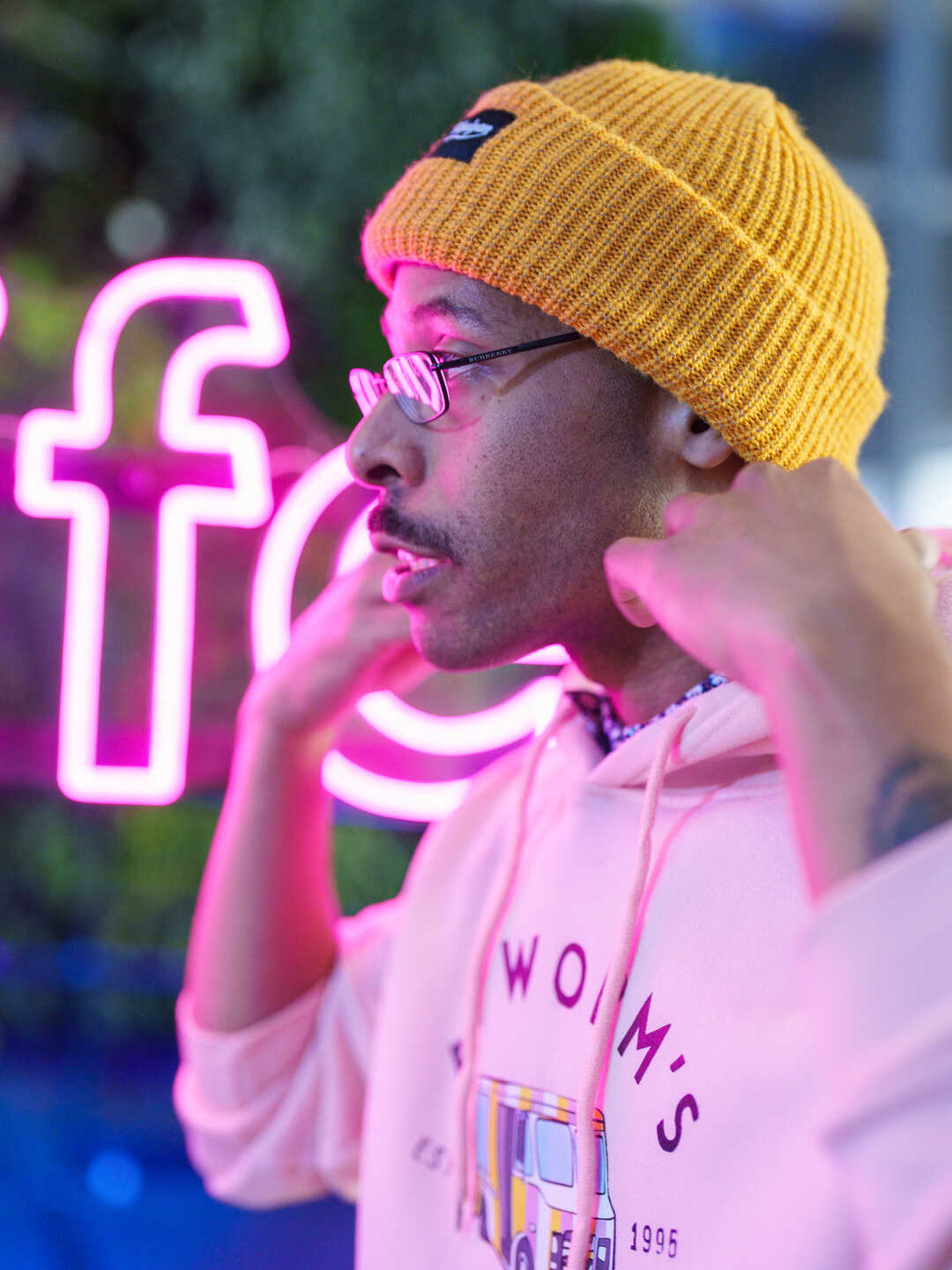
© Brandon Robinson
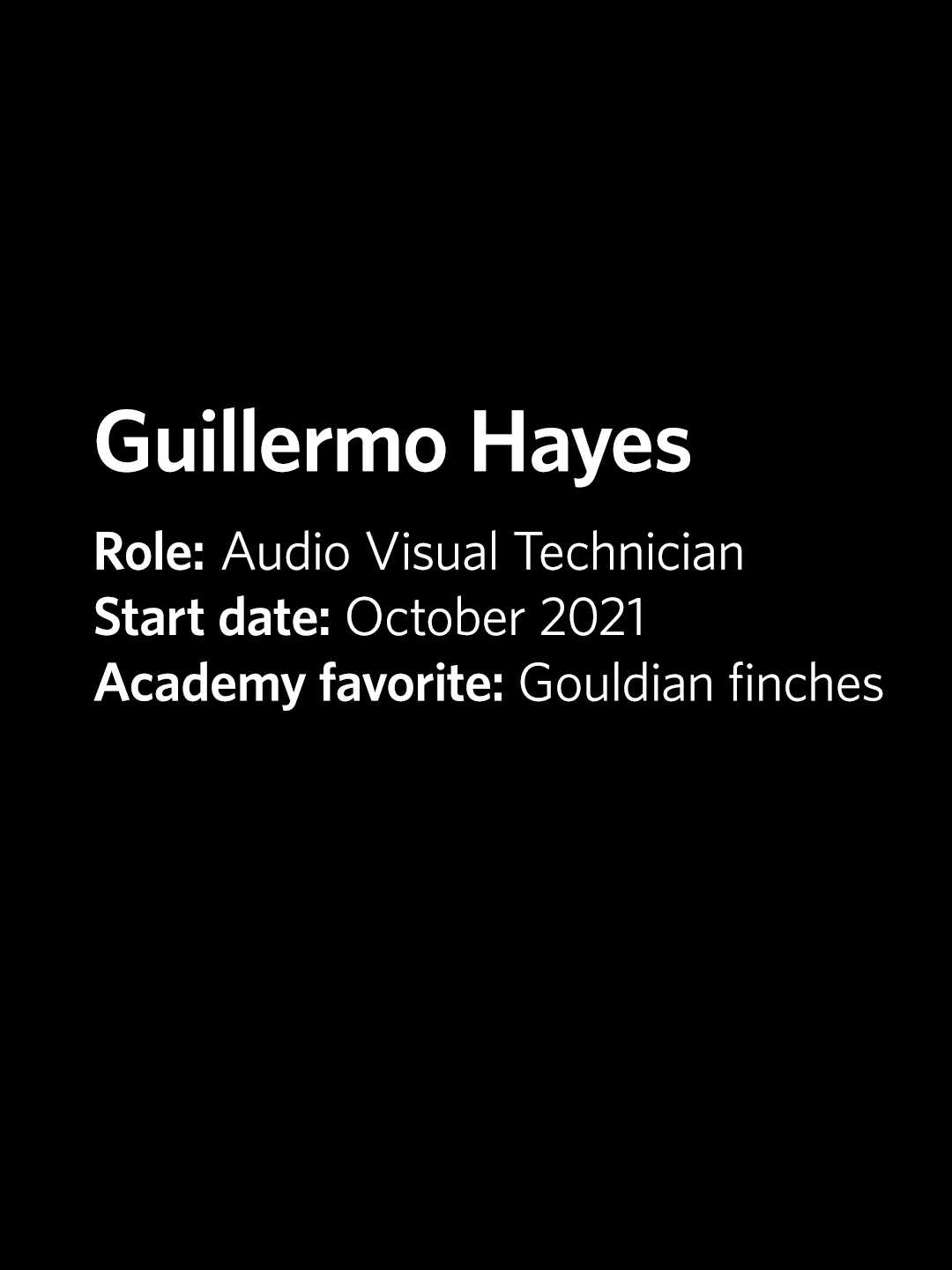
How does being Black impact or inform your work at the Academy?
I’m constantly aware of the racist history of the Academy, and even today, it’s hard to be Black in this area. I’ll go for a walk on my lunch break and some people treat me like I’m invisible, or a suspect. Sometimes avoiding eye contact is the easiest way.
Do you have any advice for members of Black communities hoping to work in your field?
Dive into AV. Learn as much as you can about everything. Opportunities are out there. Don’t let others’ prejudices and biases against Black people define your journey. Don’t dim your light for others.
How can museums and cultural institutions in general better serve underrepresented and marginalized communities?
Explore more ways to reduce admission fees, which can be prohibitively expensive for low income folks. Connect with the local community in non-white neighborhoods by doing more outreach in schools, community centers, and senior centers.
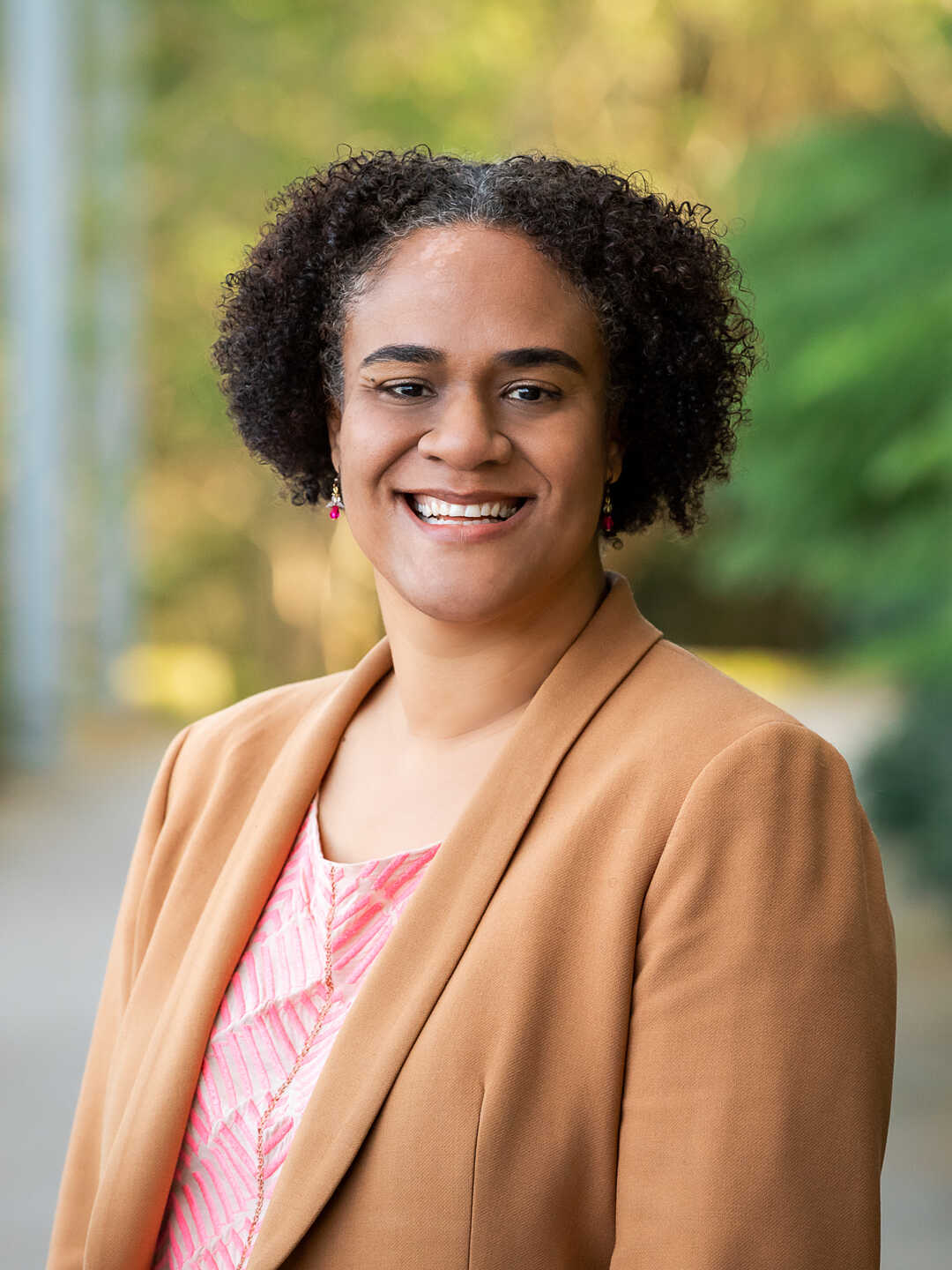
Gayle Laird © 2023 California Academy of Sciences
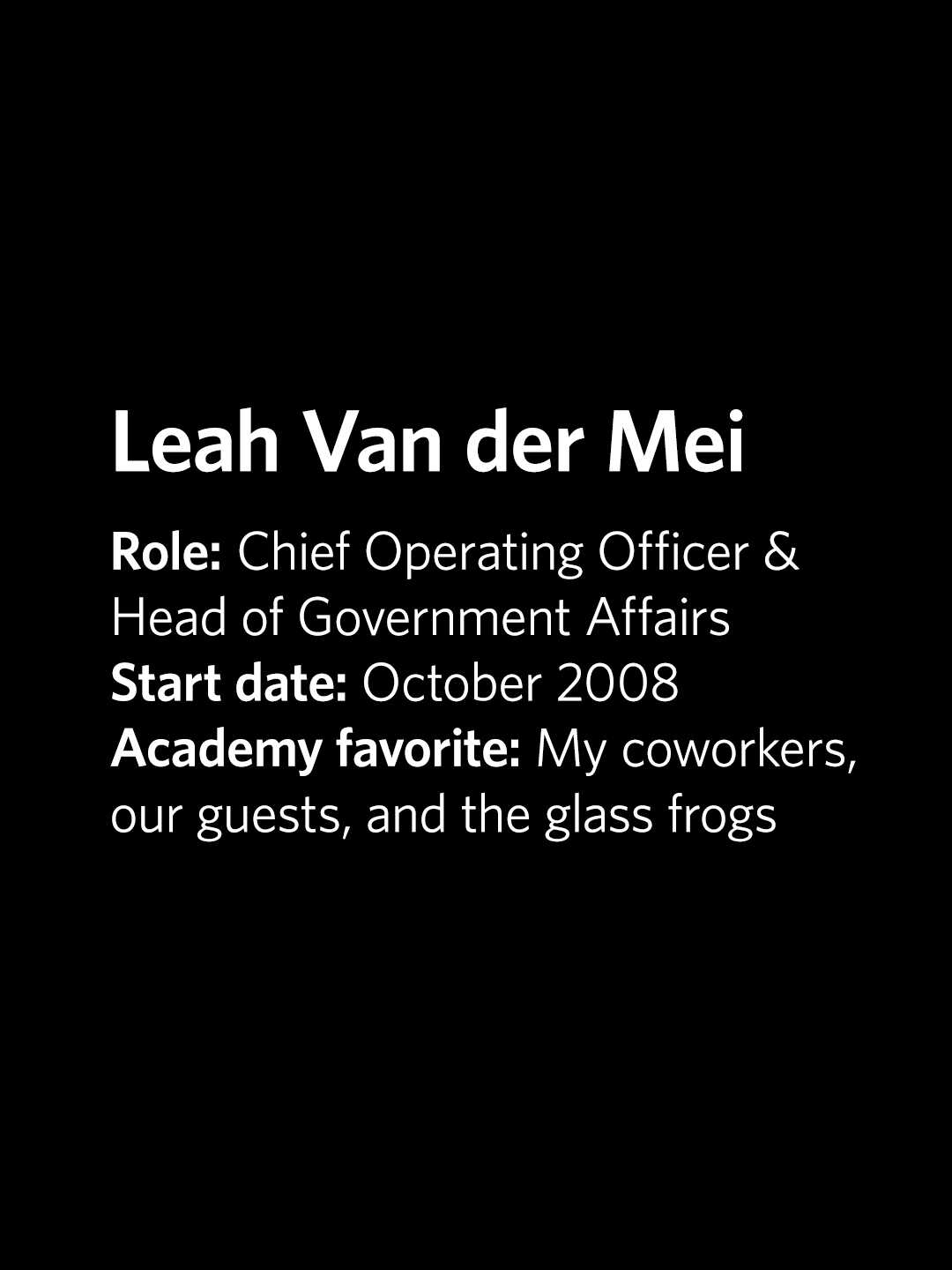
What does Black History Month mean to you?
It is a moment of reflection and pride for our ancestors that walked before us. More importantly, it reminds us all to continue to take action to secure a better future.
How does being Black impact or inform your relationship to science and nature?
I always sought out nature as a child and identified as an environmentalist before I even knew what that was. Nature felt like the great equalizer and was a safe space for me. Which is probably why my first job was a summer camp counselor in the Sierras…and now I’m working in Golden Gate Park! I'm very aware that nature isn't a safe space for everyone and I seek to be a part of changing that for others.
How can museums and cultural institutions in general better serve underrepresented and marginalized communities?
It all begins with hiring practices. A museum cannot possibly expect to serve any community without hiring leaders with lived experience. Museums must change on the inside before there is any hope to better serve Black and Brown communities. As the first Black COO at the Academy, I'm honored to be part of the changes here and hold myself accountable to continue to break down barriers for those who come after me.
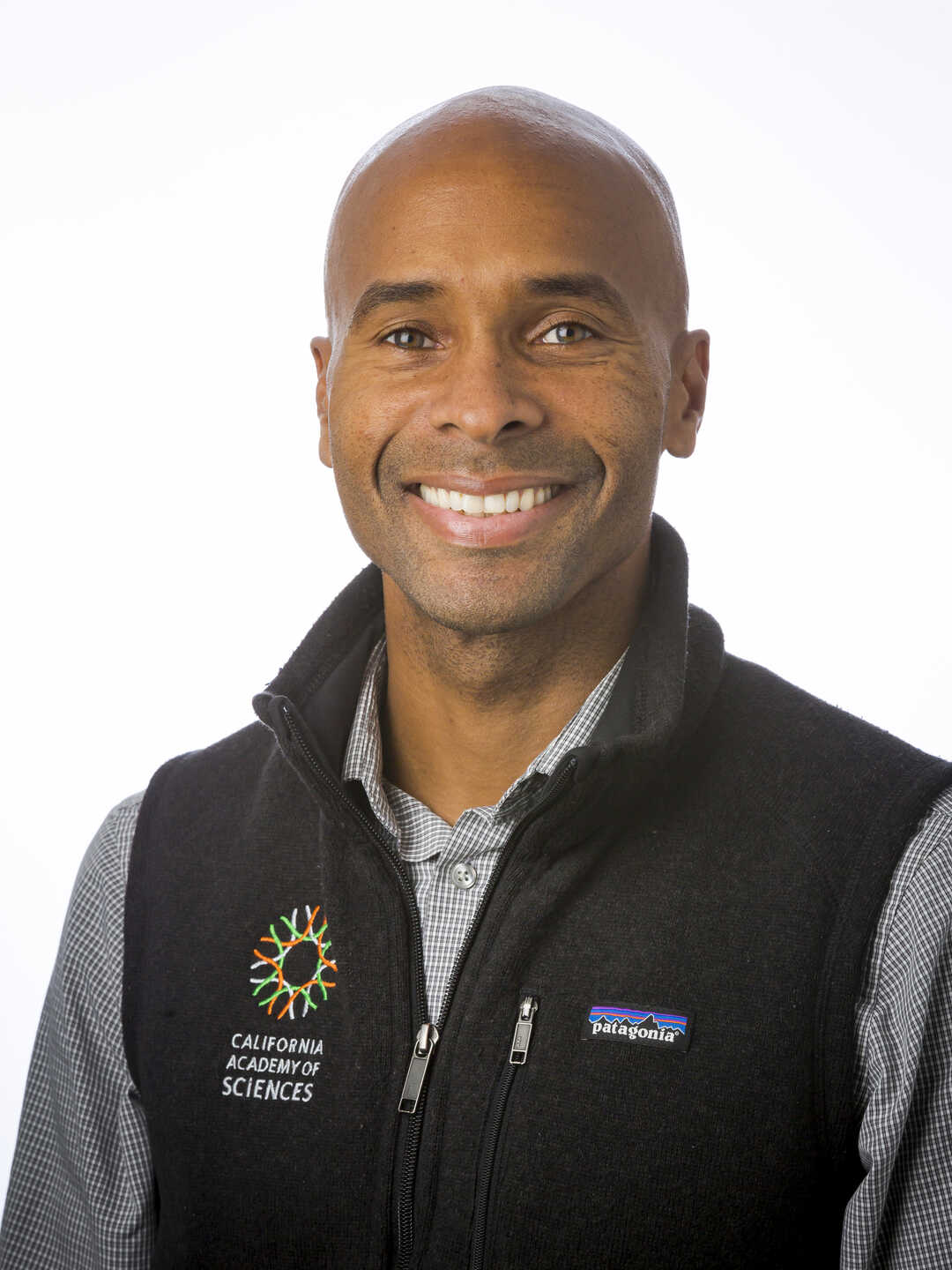
Kathryn Whitney © California Academy of Sciences
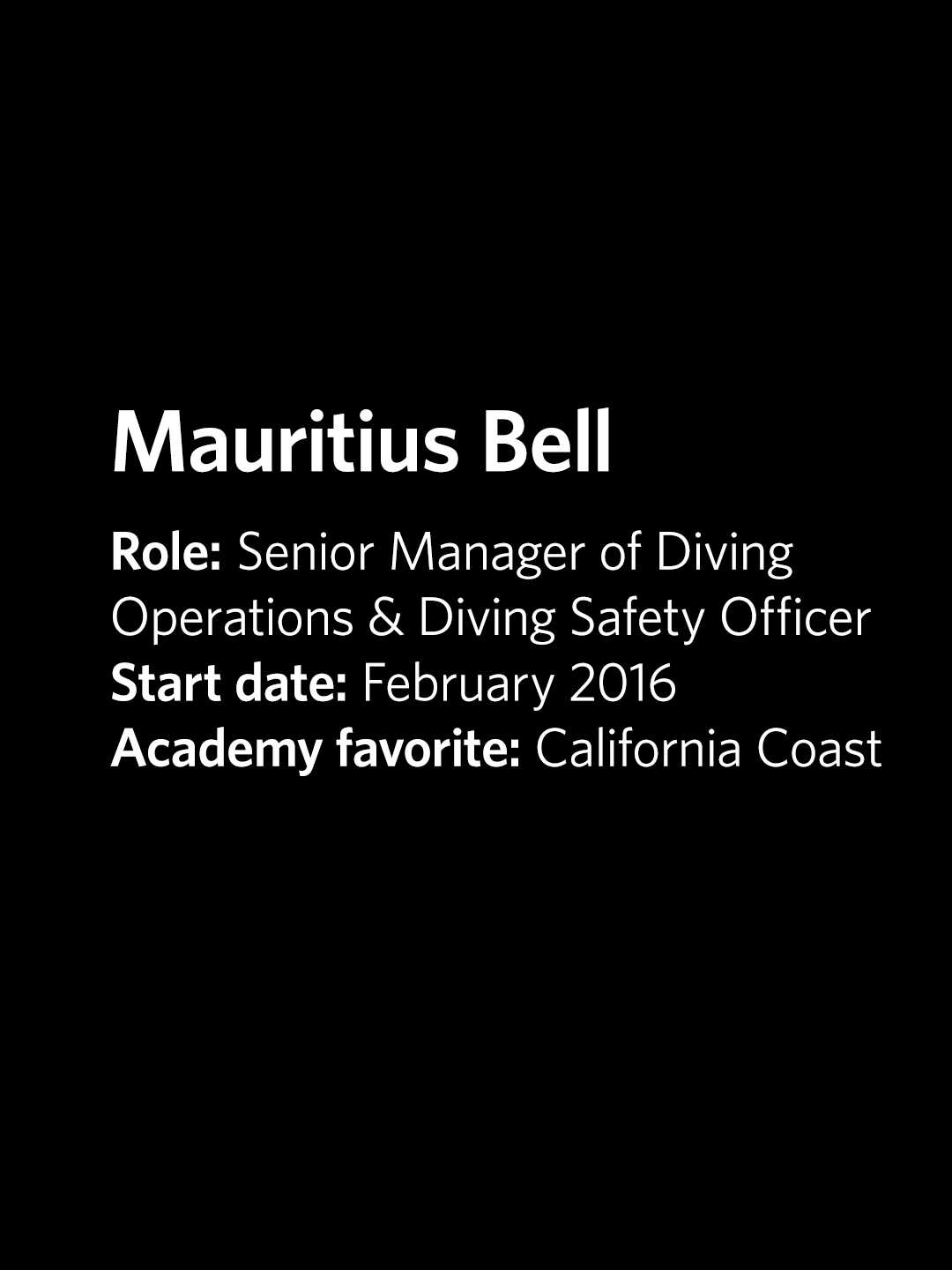
How does being Black impact or inform your work at the Academy?
I'm the only Black diver and one of the few Black folks in management at the Academy. These statistics are echoed in the broader scientific diving community, underscoring the importance of my role. It's not just Black folks who lack representation, it's seen across all BIMPOC demographics. I'm mindful of my work's cultural impact on the Academy and beyond.
Is there a specific area of your work that you’re especially proud of?
My team and I rebuilt nearly every aspect of the Academy's dive program, from training and oversight to risk management and equipment service. We've increased the number of active scientific and aquarium divers, both staff and volunteers. And we were responsible for the safe conduct of 31 Hope for Reefs rebreather expeditions in just over six years—a legendary feat! My team's reputation for supporting safe and efficient diving operations is world-renowned.
How can the Academy be more welcoming to Black guests and staff and more responsive to the needs of Black communities?
Representation matters—and recruitment helps. The more Black staff the Academy has, the more attractive the institution becomes to prospective Black employees. The Academy can explore how to direct more advertising efforts toward the Black community in San Francisco and the East Bay and conduct more outreach to Black-centric community groups.

